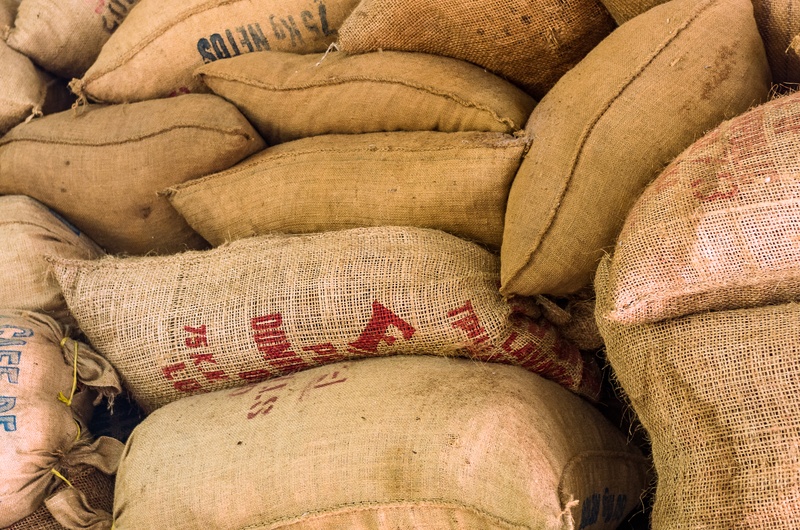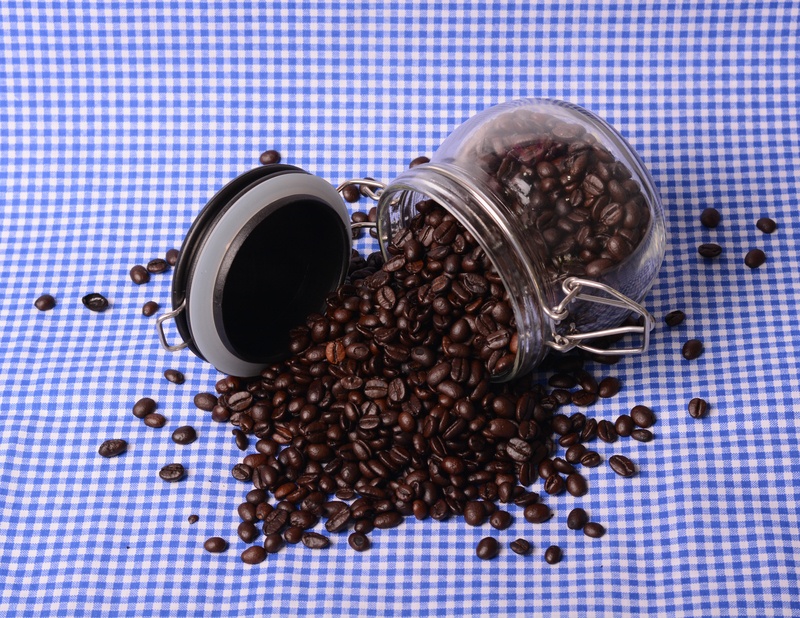One of the greatest pleasures of making coffee at home is the invigorating smell of freshly roasted coffee. As a home barista, you also know that it takes high-quality coffee beans to make the best cup of coffee possible.
But to get the most out of your newly roasted coffee beans, it’s essential to store them well. That’s why learning how to store your coffee beans will help you improve your home coffee-making and make the resulting brew as delicious as it can be.
Why Proper Coffee Bean Storage Matters
First off, coffee beans need to rest after roasting so that they can develop their fullest flavor. The exact amount of resting time for coffee beans varies. Some only need a few minutes or hours, while others take several days. Protecting your coffee beans from the elements will ensure that your coffee tastes good when it’s time to grind and brew.
Another thing that happens after roasting is the loss of carbon dioxide that builds up in coffee beans during the roasting process. This process is called degassing and is what gives coffee its “bloom.” This is the quality that makes coffee taste great, so it’s not a completely bad thing.

However, the longer coffee beans sit around after roasting, the more CO2 they lose. The more CO2 they expel, the more the flavor quality drops off, resulting in weak, lifeless coffee.
Most importantly, high-quality coffee beans cost good money. If you appreciate the art and science of home coffee-making methods, you probably don’t mind spending a bit more for the best coffee possible. In that case, it makes sense to store your beans well so that your money doesn’t go to waste along with your coffee.
Storing coffee beans well is necessary to protect them from losing their freshness and flavor. According to the National Coffee Association, there are four principal enemies of coffee:
- Air causes oxidation, in which oxygen molecules come into contact with the compounds in the coffee. Oxidation causes a breakdown in the acidity and aroma—the properties that give coffee its great taste. (Oxidation is also the process that creates rust in certain types of metal and turns sliced apples brown.)
- Moisture is a problem because coffee is hygroscopic. In other words, it absorbs odors and flavors it picks up from water in the air. These smells and tastes distort the flavor of your coffee, resulting in an undrinkable mess.
- Heat causes coffee to lose its flavor faster. Roasted coffee beans should, therefore, be kept away from heat until they are ground and ready to be brewed. Which brings us to Enemy Number Four…
- Light speeds up the staling process of coffee beans. Exposure to the UV rays of direct sunlight is particularly harmful. For this reason, coffee needs to be stored in a dark place well away from any light sources.
3 Effective Methods for Storing Coffee Beans
So how can you ensure your coffee beans stay fresh until you’re ready to use them? Here are three of the most effective ways of storing your coffee beans to keep them flavorful and delicious.

- Jars with lids. A jar to be used for storing coffee should have a secure lid so it will be as airtight as possible. Mason jars work exceptionally well, but you can also repurpose empty pasta sauce jars. Make sure you wash them well so that they don’t make your coffee taste like spaghetti and meatballs!
- The bag they came in. In many cases, the bag in which your coffee beans came is a suitable storage method. Keep in mind, though, that bags made of thin paper are ineffective because they don’t protect coffee beans from oxygen. A resealable bag made with high-quality paper and featuring a one-way valve works best.
- There are many specially designed containers and “coffee vaults” made just for storing coffee beans. Look for a canister that has a wide mouth so that scooping your coffee beans will be less of a hassle. Many of these canisters come with scoops to make life simpler.
When choosing a coffee canister, look for one made of stainless steel, which will keep your coffee beans safe from sunlight. Also, find one that has an airtight vacuum seal that will keep out any air or moisture.
More Helpful Hints for Storing Coffee Beans
When you’re storing your coffee beans, there are a few things to keep in mind to keep them fresh.
First off, consider buying your beans in smaller quantities and more often. This way, you won’t have any excess beans sitting around going stale.
Next, when you put your coffee beans away, it’s important to keep them in a dry, cool place to protect them from moisture, heat, and light. If you have a kitchen cabinet placed well away from your oven and stove, this would be an excellent place to keep coffee beans.
You’ll probably want to have some coffee beans on the countertop to use regularly. You can do this by storing your beans in an opaque container. These are most effective at keeping out light, so it’s a handy method for storing coffee that you use regularly.
Finally, sometimes you might like an attractive container just to make your stored coffee look nice. That’s fine, but if you do, you should divide your coffee beans into smaller portions and keep what you don’t use in an airtight container. They’ll look pretty, but whatever you do, don’t put them on a windowsill!
If by some unfortunate circumstances, your coffee beans do spoil, don’t be quite so quick to throw them out. Trevor Corlett of Madcap Coffee Company says stale coffee beans can be used to make cold brew coffee “and it’ll taste just as good.”
To Freeze or Not to Freeze?
There is considerable controversy over whether or not coffee should be stored in a freezer. The argument against storing coffee this way is its hygroscopic property, as stated above, which causes coffee to absorb flavors and odors from the foods around it and ruins its taste.
Another argument against storing coffee in a freezer is that if the container is not completely airtight, it will let in more moisture and oxygen. Exposure to moisture and oxygen is what causes freezer burn in foods that have been frozen for too long, and you can bet it won’t be good for your coffee.
If you do decide to keep your coffee in the freezer, Tony Konecny recommends in this Blue Bottle Coffee post that you should only do so if you plan to store it for much longer than a month. When you take it out to use, let it thaw to room temperature while still fully sealed before grinding and brewing it.
After you’ve finished grinding and brewing your beans, put the unused portion of coffee back in the freezer immediately before condensation forms, which will cause the flavor of the coffee to spoil even further.
However, if there’s one thing experts agree on, it’s that you should never, ever store coffee beans in a refrigerator. The climate inside refrigerators is much more humid than in freezers, so the level of moisture inside a fridge makes it all too easy for coffee beans to absorb smells from the other foods around it. So unless you want your coffee beans to taste like leftover meatloaf, keeping it in a refrigerator is a terrible idea. (Then again, there is a market for unusual coffee flavors, so as the saying goes, don’t knock it until you’ve tried it.)
You put a lot of time and energy into crafting the perfect cup of coffee, and it takes high-quality beans to reach that level of perfection. It, therefore, makes sense to invest in an effective method of storing your precious coffee beans so that they’ll deliver the flavor you love. Spend some time finding a good way to store your coffee beans. Your coffee will taste better for it!
What’s your favorite way of storing coffee beans? Tell us in the comments!

